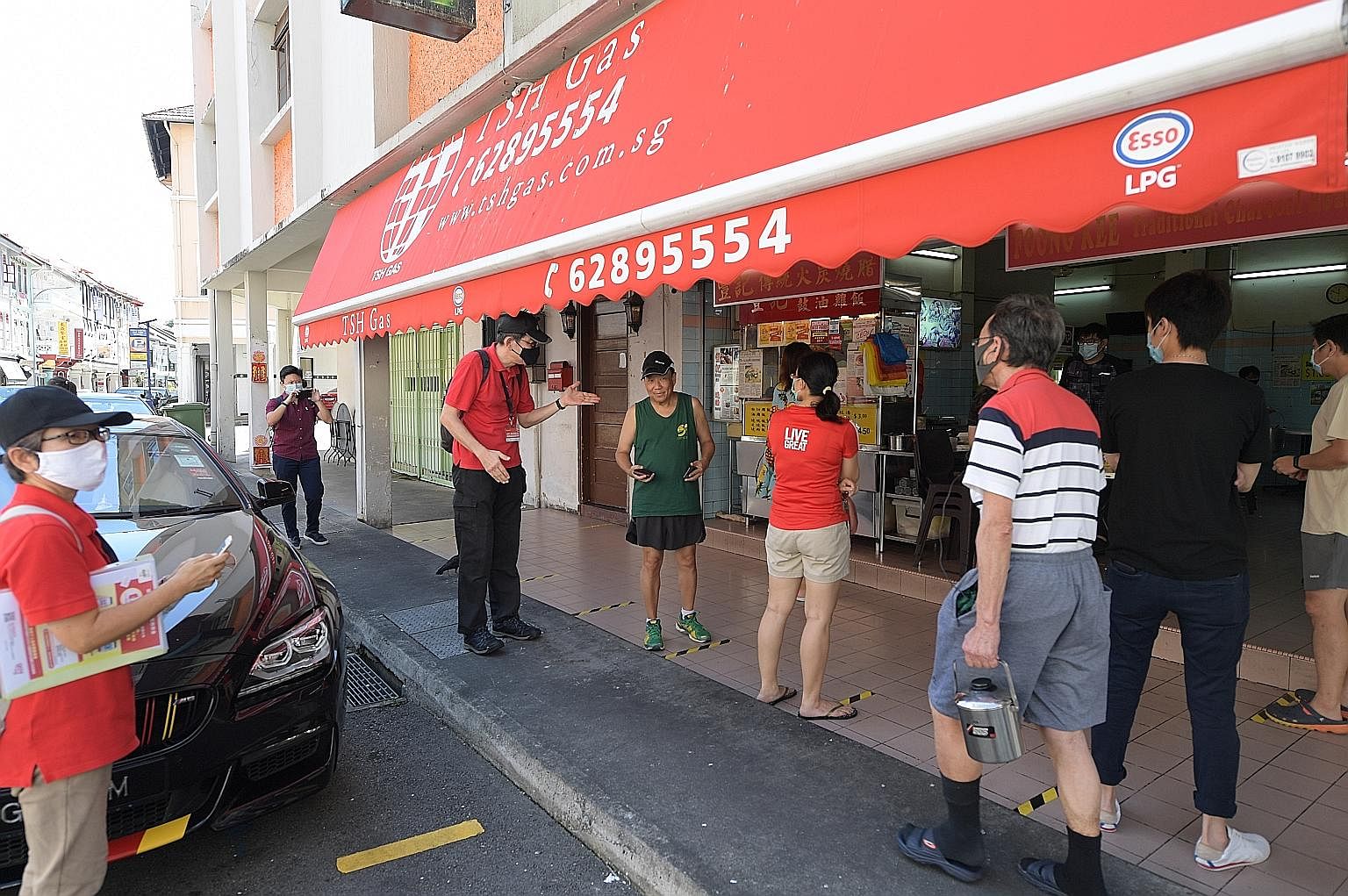The reopening of traditional Chinese medicine halls and bak kwa shops on Tuesday has led to increased activity in Chinatown, where such stores are in higher concentration.
Those who conduct enforcement checks in the area say patrols now take longer with more businesses to inspect and more people out and about.
Some firms have reopened their doors this week with stricter rules in place, as Singapore begins a phased reopening of its economy. For the 66 tourist guides now employed by the Singapore Tourism Board (STB) as safe distancing ambassadors, it means a heavier workload.
Mr Hoo Mun Cheong, who patrols the streets of Chinatown three to four days a week, told The Straits Times that his route now takes about 31/2 hours to complete, up from the usual two hours. He walks the route twice a day during lunch and dinner time.
"Some shops may not have gotten themselves ready - for example, the safe distance marking was not done or there's an entrance where the QR code was not done. So we have to explain to them and tell them what to do," said Mr Hoo, 59.
Since Tuesday, stricter rules have been in place for businesses operating as part of essential services. They include having split teams and staggered break times as well as using the national digital check-in system SafeEntry to record all entries and exits by visitors and staff.
Mr Hoo said his checks on business premises now include ensuring SafeEntry is in place, as well as that staff are wearing masks and customers and delivery personnel are practising safe distancing.
More are now complying, said Mr Hoo, who added that he sees his role as a form of community service.
Businesses in the area say the changing rules can be difficult to keep up with, but the daily visits by ambassadors help to provide clarity.

Bak kwa brand Kim Joo Guan, which reopened its South Bridge Road outlet on Tuesday after three weeks, has seen a "better than expected" volume of walk-in customers, said owner Arthur Ong.
"When we first reopened the shop, the staff were a bit confused about what they had to do. But we were able to clear some doubts with the safe distancing ambassadors," he said.
Unlike most other establishments, one supermarket in New Bridge Road that The Straits Times visited on Thursday did not display a SafeEntry QR code. Instead, staff members scanned the identity cards of those who entered.
Its owner, who declined to be named, said that many of his customers, who are older folk living in the area, do not have smartphones.
"Sometimes they forget their IC, so I just tell them to go home and take it. Because our customers know us so well, they are cooperative," he said.
Mr Jack Taylor Yang, operations manager of Olivia Restaurant & Lounge in Keong Saik Road, noted that wearing a mask in the kitchen can be challenging due to the heat and the need to constantly taste food.
"There were a few occasions in the beginning where ambassadors came in and had to remind kitchen staff to keep it on. But after a while it becomes a habit; you taste something and put your mask back up. It's not that much of a hassle."
To deal with the heat, staff are encouraged to hydrate more often and take more breaks.
It has also become the norm for staff to eat their meals separately, while reduced manpower needs mean a lower risk of congregating.
"We are working very hard to comply. It is for our own safety. We just need to be fully aware and check every day if there are any updates or changes," said Mr Taylor Yang.











